With a small but dedicated community, Cardiff is adopting hurling. But what makes the ancient game so thrilling, and can it thrive in Wales?
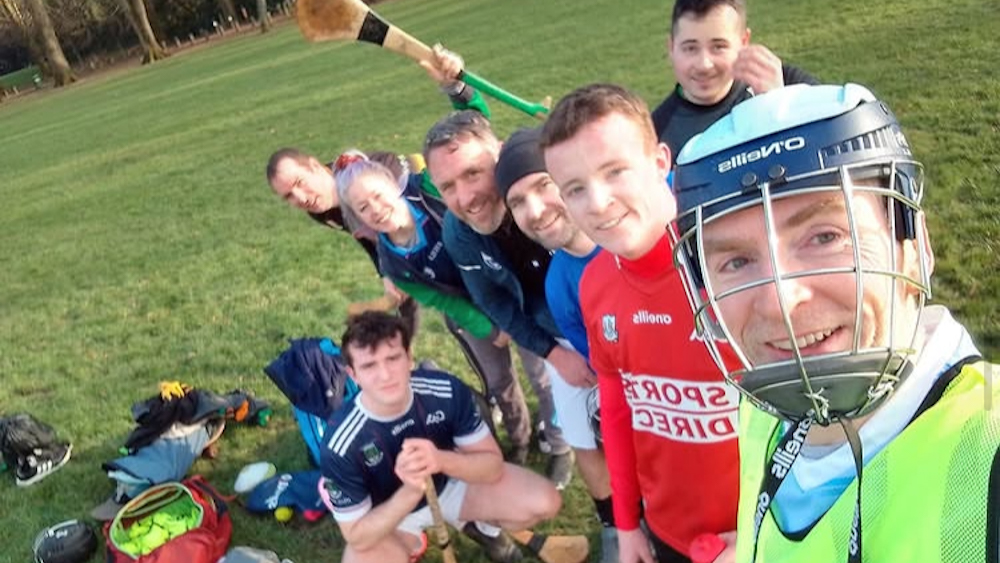
On the windblown fields of Pontcanna, an unassuming group gathers. From battered kitbags, they begin to unpack the simple implements of a tradition stretching back to older days: Hurleys, curved wooden sticks stained by sweat and rain, alongside Sliotars, leather balls battered by a hundred past games. They are Cardiff’s hurlers, a small but dedicated community keeping Ireland’s most ancient sport alive.
Hurling, a sport older than Irish history, is more than just a game to Ireland and its people. It’s a symbol of heritage, resistance, and identity, deeply entwined with the Irish nationalist movement. Dating back over 3,000 years to the days of Celtic warriors. But here in Cardiff, beyond its native heartland, hurling has found an unexpected home.
“It’s the fastest field sport in the world,” says Aidan O’Donnel, a Cardiff University lecturer and avid member of Cardiff’s St Colmcille’s G.A.A. (Gaelic Athletic Association) Club hurling team. “It’s exciting because it’s very physical, and very fast.”
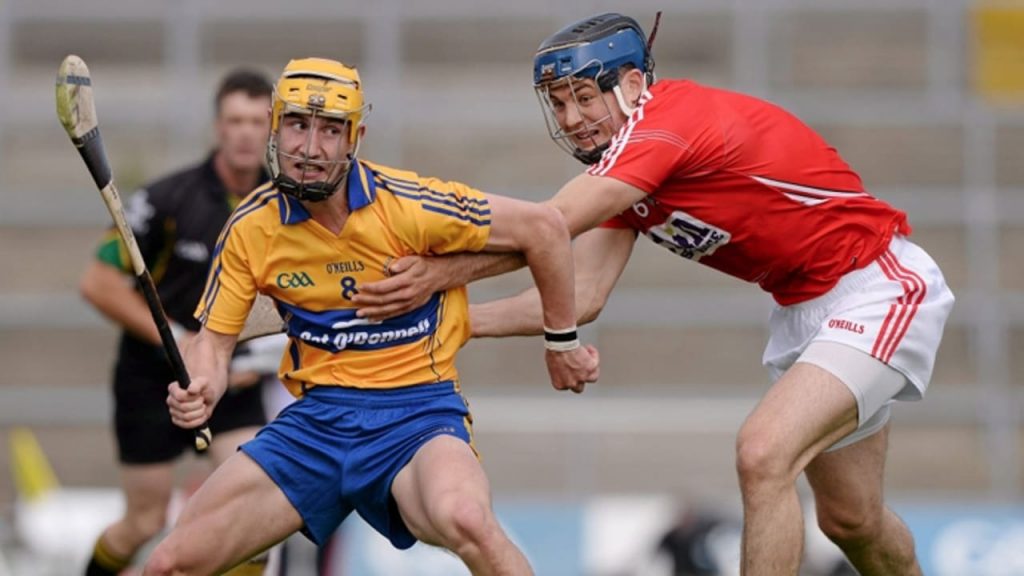
The game involves a small leather ball, known as a sliotar, which is struck by a large wooden stick known as a hurley. Hurlers run across the pitch at breakneck speeds, catching and passing the sliotar mid-air, or bounce and run with it, as the rules of the game require players to either bounce or pass the sliotar every four steps. To score points, players can either score past the keeper for three points or hit the sliotar through the crossbar for one. Often described as ‘hockey in the air’, hurling is the most exciting sport you’ve probably never played.
In ancient times, warriors would settle disputes with hurleys rather than their swords. Their matches would span miles, involving several villages. The sport is key to Irish myths too, most notably in the legend of Cú Chulainn, who—as a young boy—slew the Hound of Culann using his trusty hurl and sliotar, which gained him his name ‘Cú Chulainn’, meaning ‘Hound of Culann’.
In Wales, where rugby is eminent, establishing a new sport is no easy feat. But Cardiff’s hurling club, St Colmcille’s, part of the G.A.A., has been steadily growing, welcoming curious locals, Irish expats, and sports enthusiasts drawn to the game’s uniqueness.
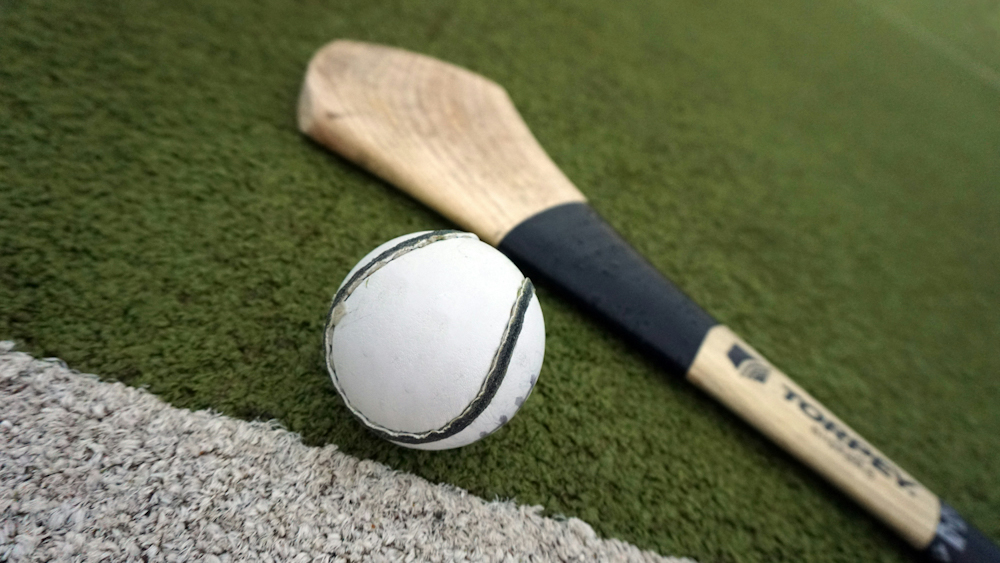
One such expat is Phillip Tierney, an Irish native living in Cardiff. “Moving abroad it can get a bit lonely at times; it’s kind of hard to get to know people. But through hurling, you meet people. It’s a way of meeting people from home, keeping up something that I’ve always done. It’s my first time here, but I feel like I’m part of the community.”
“From the minute I could walk, I could hold a hurley. I’ve been playing since I was three years old. My parents always played, so I was always interested in it. Played for my hometown, for my county, and my college. It’s one of the more unusual sports, and it’s played all across the world now. So, we have pride in it.”
The club plays every week, battling the elements on the open fields of Pontcanna. Rain, wind, mud, or sun, they show up, swinging hurleys and chasing sliotars with relentless passion.
“I didn’t touch a hurley for 19 years until I came down here to Cardiff, and just really enjoyed getting into the game,” says Kieran Brannery, another member of St Colmcille’s, Cardiff’s only hurling club. “It’s a small scene here in Cardiff. We train every week between the clocks going back and going forward, but we need more people. The goal for this year is getting proper matches going. We’re trying to revive the club.”
“Anyone can come play. We’re at the south side of Pontcanna Fields, at half six on a Wednesday. We’d love to see more people coming down.”
Despite their progress and the community they’ve built, hurling in Cardiff faces challenges. Unlike in Ireland, where hurling is a widespread national obsession, here in Wales it remains a niche sport. So finding enough players is an ongoing battle.
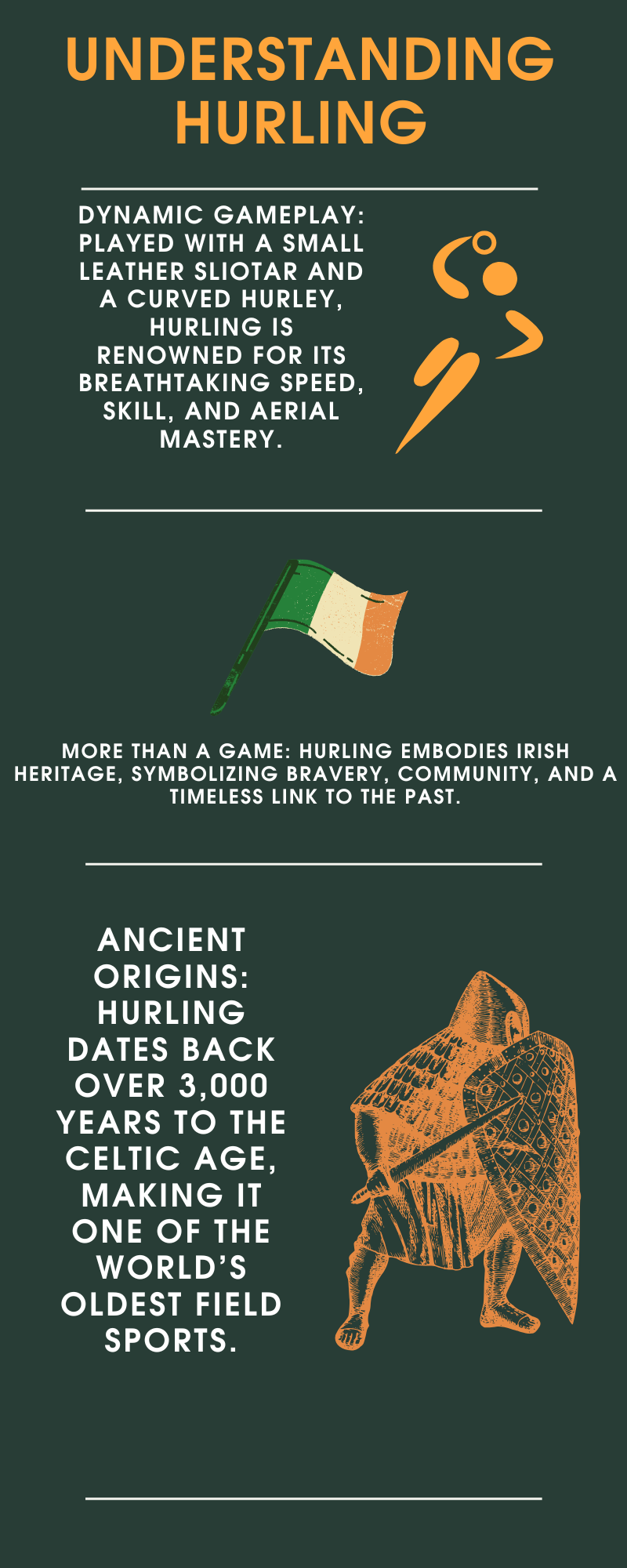
Another among the players is Anindya Hazra, an international student from Kolkata, India. It’s his first time trying hurling. “I came to experience a new sport,” he says. “I had watched a few videos of hurling on social media, and it seemed interesting—a mix of cricket, tennis, hockey, football… you just name it. And I had learnt that it’s something truly, and authentically, Irish. So yeah, I wanted to experience a truly Irish thing in Cardiff.”
“Did I enjoy it? Yes, definitely. It was top notch. Although I had played field games like cricket and football back in India quite frequently… I’d been out of practice for some time… so my fitness was far from good. Whilst hurling, it was evident—I was falling back while sprinting across the field or dribbling with the ball. But the guys at the G.A.A. club never made me feel unwelcome. They were really nice. I’ll definitely try hurling again. I think I’ll try and learn the basics this Easter.”
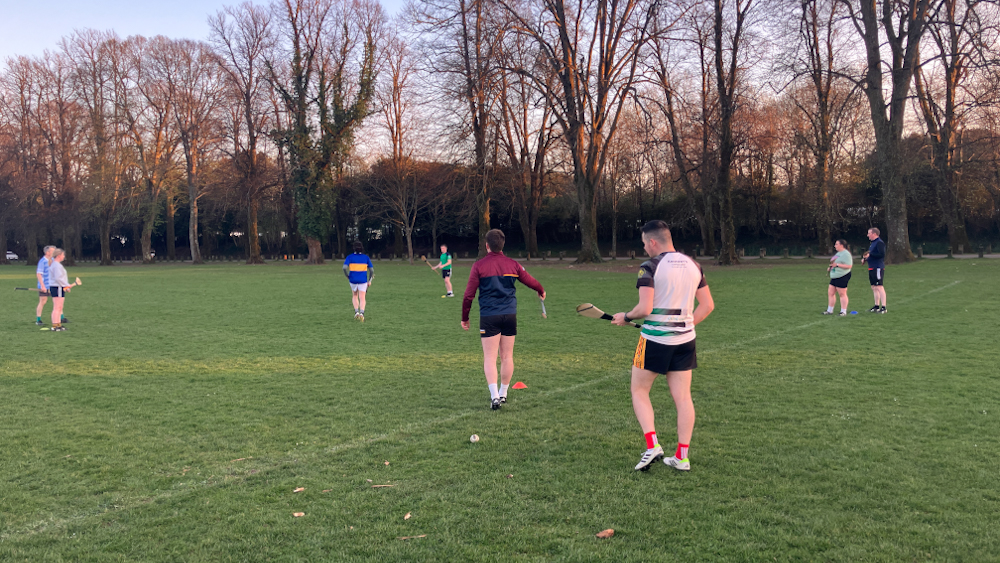
For now, the ancient game continues on the fields of Pontcanna, just beyond the city centre. Anyone can join St Colmcille’s G.A.A. Club and play one of the world’s oldest field sports. “People are always welcome. You don’t have to be good, you just have to come along,” Kieran says.
With the city’s international population and growing interest in alternative sports, there’s a unique opportunity for hurling to take root in new soil. As Cardiff continues to evolve into a more multicultural, sporting city, hurling offers something distinct—an ancient sport played with fierce passion.
Hurling offers a new experience: raw, thrilling, and open to anyone who wants to learn and hit some sliotars.
